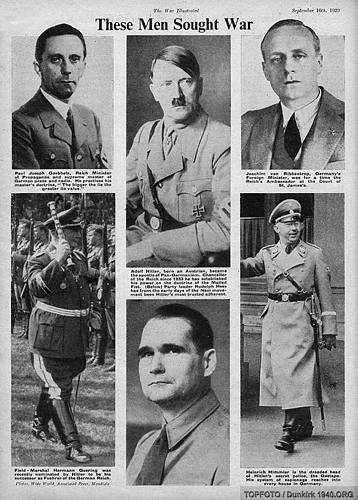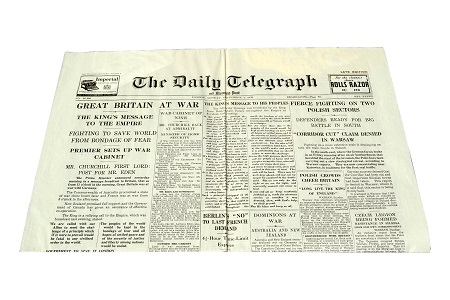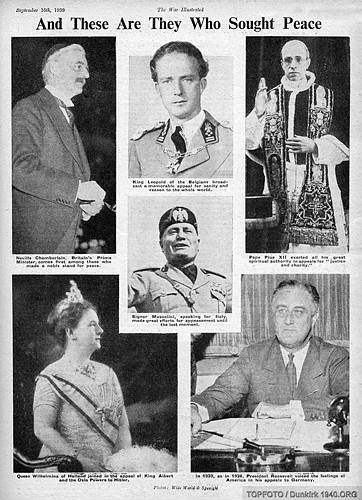
World War One was essentially a re-run of the Franco-Prussian War of 1870-71. The political tension was heightened because of the assassination of Franz Ferdinand and his wife Sofie. This had a spiralling effect which rapidly turned from diplomatic crisis to that of full-blown war; Germany backed the Austro-Hungarian Empire against Serbia (who they blamed for the assassination), who in turn enjoyed the backing of Imperial Russia. All sides mobilised and it was Germany who blinked first, plunging Europe into a new conflict. France, who was allied to Russia, saw this as a chance to avenge the loss of Alsace and Lorraine, although it took the German invasion of Belgium to drag the British Empire into the conflict, thus turning this European crisis into the global conflict it is now remembered as.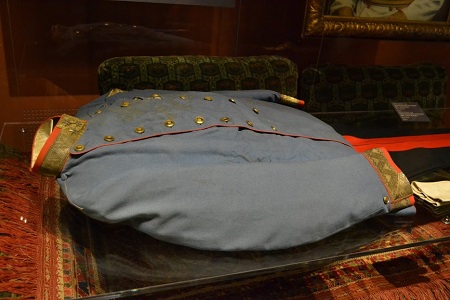 The actual tunic worn by Archduke Franz Ferdinand when assassinated on June 28, 1914, Sarajevo.
The actual tunic worn by Archduke Franz Ferdinand when assassinated on June 28, 1914, Sarajevo.
It is important to remember that in 1918, while Germany called for an armistice, they were far from beaten, although exactly who was in a position to actually win the conflict in certain respects remains unclear. The terms of the armistice were imposed on Germany in the Treaty of Versailles with the Allied Powers, due to Germany having been the first to declare war in 1914, naturally blaming Germany outright for the war. The imposed terms were, to say the least, draconian in nature and would go on to assist an already fragile post-war economy to suffer the worst aspects of the global downturn which followed the Wall Street crash. This was another factor which would lead to a fertile breeding ground for extremism and further conflict.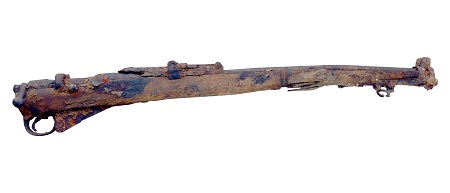 British SMLE dug from the Belgian Battlefields.
British SMLE dug from the Belgian Battlefields.
The Allied Powers failed to impress upon the German people that they had in fact been beaten, by failing to hold a victory parade in Germany; as a consequence, the German people were not in part fed into the narrative which the many extremist parties in Germany would go on to exploit in the coming years. Indeed, it was predicted that the failure to inflict a resounding and clear defeat would essentially mean that there would be another re-run of the conflict within 25 years; a prediction which would chillingly prove accurate in 1939.